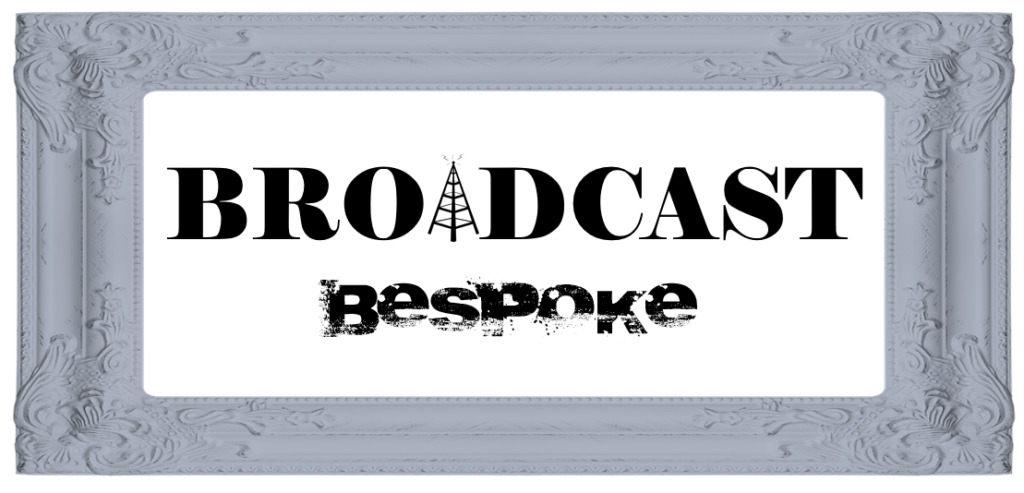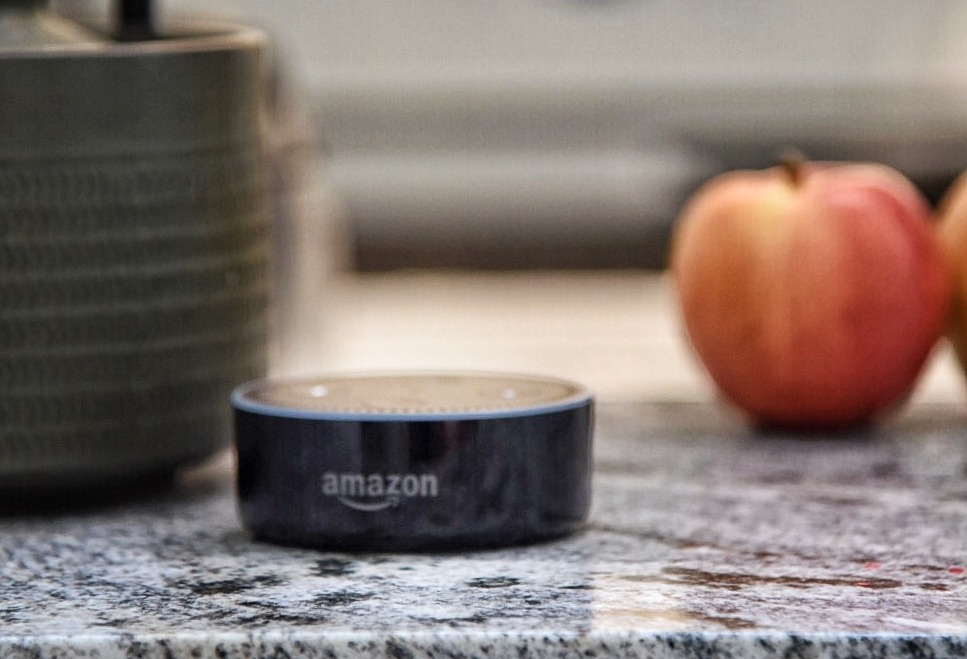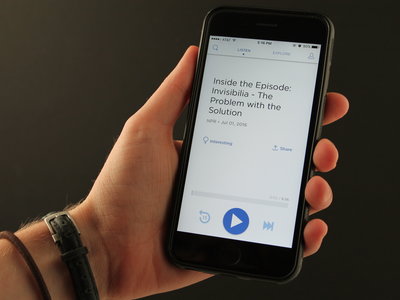
The misleading headline aside, there’s nothing very “bespoke” about this blog post. I don’t write them for you personally. I write them for the royal YOU. Lots of you.
And that’s the point. I’m trying to write quality content that many people with an interest in radio, media, and technology will enjoy and appreciate.
There’s a reason why most radio pros aren’t familiar with the term. We’re broadcasters, making products designed to have broad reach, high cume, mass consumption.
Conversely, the idea of bespoke products is their customized, personalized flavor.
Perhaps you hadn’t heard of bespoke clothing, cars, or handbags. As someone who buys my suits off the rack, and my cars off the lot, I hadn’t. But while reading a piece in Nieman Lab over the holidays – “Predictions for Journalism”– I not only ran across the term, but also a dear friend, Tamar Charney, managing editor of NPR One, an amazing app we showcased back in 2015 in our “Radio’s Most Innovative” series.
Tamar’s a former public radio programmer, and now a practitioner of the mashup of traditional and digital. She was included, along with dozens of other savvy journalism pros from all walks of media life in the Nieman piece. You can read her comments – “From Broadcast To Bespoke” – here.
She was kind enough to answer a few key questions about the bespoke trend to get our juices flowing.

Fred Jacobs: Radio broadcasters have had to learn many new terms and concepts the past few years. But many are not familiar with “bespoke.” Break it down for us. What is it about and what does it have to do with traditional radio broadcasting.
Tamar Charney: I wouldn’t expect anyone to have heard it applied to what we do in radio since I mashed the two concepts together for a presentation I gave to NPR’s leadership team this past year! I was trying to figure out how to summarize the fundamental shift I was seeing from our past as broadcasters to the future we are headed toward. And that was the shift from “broadcast” to “bespoke.”
As an industry, radio broadcasters have been just what that says – “broadcasters.” We “broadcast” one thing to many people and everyone hears the exact same thing if they are listening at any given moment. But this is not the future – or arguably even the present – of media consumption. We are getting content on demand, but in more and more places are offered content that has been “curated” or “personalized” for us based on our past behavior and other factors. Social media sites do this, news websites are doing this, and the Netflix and Spotify’s of the world do this.
But I do think it is hard for radio creators to shift our thinking from creating a “show” that the entire listening area can hear at the same time to one where we create content that can be experienced very differently by listeners – perhaps in different orders, at different times, and in different contexts. This is a change that cuts to the core of what we’ve been as “broad”-casters.

FJ: Does “bespoke” impact newsrooms & journalists only, or does it apply to music radio stations, programmers & personalities, too?
TC: I’d suggest it actually got its foothold with music and started to affect news consumption. Pandora and Spotify are exactly the sort of personalized replacements for broadcast that have radically changed listeners’ expectations. They’ve won over a large share of listening particularly among younger listeners (58% of Gen Z listens to Spotify according to your research!). Now podcasts and even some news content are available on those platforms. 15 years ago everyone listening to Morning Edition or Rush or Howard Stern heard the same show. Now everyone listening to Spotify or NPR One is hearing something different.
FJ: How does the confluence of podcasting and smart speakers define the “bespoke” approach to content & distribution?
TC: It is all starting to come together, isn’t it? NPR launched NPR One five years ago as the “news” response to Pandora. Media consumers were learning from Netflix, YouTube, and Pandora that content could be controllable, continuous, and personalized. Podcasts were also training audiences to expect spoken word content on demand. But we weren’t expecting voice assistant technology to turbocharge that trend.

Smart speakers invite us to control our listening and information experiences as we learn to just ask for what we want, not what we are given. (It turned out NPR One got a new job powering the smart speaker experience in ways that were never expected when it was created.) The things people most often ask a smart speaker for, are exactly the things that used to be the job of radio – music, weather, news, jokes, traffic, etc.
But beyond being able to get the content just by asking for it, listeners can ask for more information from an interactive BBC newscast, skip a news story as you listen to Alexa’s longform news experience or News from Google Assistant, and listen to flows of content that have been personalized.
FJ: We have “craft beer,” “craft vacations,” but is “craft radio” far behind? And what will it look and sound like?
TC: In some ways I actually think podcasts are the “craft” versions of radio. Sure, there are many mass produced podcasts, but podcasts are where you find the very niche handmade-for-a-certain-type-of-listener content. To me “craft” is about the actual piece of content.
I think the “bespoke” trend is more about how organizations formerly known as broadcasters need to think about our role as hybrid content producers/distributors. How do we make and distribute content experiences that meet people where they are in the ways they now expect to listen? They expect content packaged for them in a much more “customized” or bespoke way, how do we respond to that?
FJ: Is there a dark side to this trend?
TC: The answer is yes. Broadcasting, because it was so broad, did create some common ground between listeners (particularly in the days before ideological divides hit the airwaves.) With personalization, it is easy for there to be such differences in what people hear that we risk creating even deeper divisions between people. But I suppose the days of everyone discussing what was on TV last night or on the morning zoo show are already a thing of the past with or without broadcasting going bespoke. But I think a lot about how in a world of personalized media do we create the sense of shared community and common understanding that is at the heart of American democracy.
FJ: As consumers are looking for personalized content, can radio broadcasters meet those needs? Where would you start?

TC: I think we have to or the tech companies will eat our lunch. In addition to the work that NPR and the BBC have done in this area, there’s a lot of work being done by European broadcasters on personalization.
FJ: Without giving away company secrets, what’s the NPR thinking on bespoke?
TC: NPR One 😉
- Like A Pair Of Old Jeans - April 2, 2025
- What’s Fair Is Fair - April 1, 2025
- What’s On Your Bucket List? - March 31, 2025




The acceleration of personalized content and individualized consumption that technology is enabling is certainly growing and provides a lot of promise, but listeners continue to consume broadcast over bespoke in a massively disproportionate way that is not reflected in this conversation.
In a similar way, craft beers are all the rage, but Budweiser, Bud Light, Coors Light and Miller Lite still dominate shelf space and sales.
Andrew, you are correct that broadcast outperforms podcast in all dimensions, especially reach and consumption. But Tamar’s point is that radio brands/companies would be wise to create both, as NPR is doing. Thanks for the commment.
I wonder. Is the demand for ‘bespoke’ media a kind of personal reaction to the pressure for conformity to social and political identity groups? Sure the tech makes it easier….but is it about the tech? You ever read a book called “Hooked: How to Build Habit-Forming Products” by Nir Eyal. Maybe we could learn some lessons that apply to broadcast? I just started reading the book. It is fascinating how the whole tech industry is using it to encourage habitual use of the tech.
No data plan required. No personal information to hack. Radio is free.
Thanks for the book recommendation and the reminder about radio’s inherent advantages.
One comment is that NPR can afford to dabble with “bespoke” with the budgets most commercial radio stations play with they “bebroke.” It’s hard to be bespoke when you be-broke. Uncle Lalo brings up an interesting point, is bespoke in broadcasting just another phrase for echo chamber. Is it just creating more tribalism? Or as we used to call it, fragmentation.